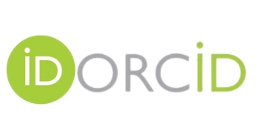La tarea en Inglés: un estudio en centros de educación superior en Sancti Spiritus.
Palabras clave:
Tarea, Educación Superior, Enseñanza, AprendizajeResumen
Fundamento: La tarea, en la clase de Inglés es una herramienta para practicar aspectos lingüísticos y para utilizarla con diferentes propósitos. En educación superior, aunque juega un importante papel, no es vista de igual modo que en niveles inferiores. La tarea no ha sido ampliamente abordada por los investigadores, por lo que las controversias entre defensores y oponentes han perdurado por décadas sin llegar a un acuerdo.
Objetivo: Explorar los criterios de los profesores sobre el uso de la tarea en clases de inglés.
Metodología: Se realizó una encuesta con los diez propósitos sugeridos por Epstein (1998) a 28 profesores de inglés de las dos universidades de Sancti Spiritus que participaron en sendos talleres del tema. Los propósitos fueron: práctica, preparación del estudiante, desarrollo personal, interacción, relación padre-hijo, padre-profesor, relaciones públicas, política escolar y castigo estudiantil. Del nivel estadístico se utilizó distribución de frecuencia y test de Mann-Whitney.
Resultados: Se constataron los mayores porcentajes en la práctica, preparación del estudiante y participación, mientras que la relación padre-hijo, padre-profesor, relaciones públicas, política escolar y castigo estudiantil fueron inferiores. En las clases visitadas, cinco enfatizaban escritura y tres la interacción oral e incluían alguno de los cinco primeros propósitos de la encuesta.
Conclusiones: No existen suficientes referentes teóricos-metodológicos acerca de la tarea, la mayor parte de los profesores asigna la tarea para practicar los contenidos impartidos, para mayor preparación del estudiante, su desarrollo personal e interacción, mientras que la relación padre-hijo, padre-profesor, relaciones públicas, política escolar y castigo estudiantil son menos utilizados.Citas
1- Consejo de Europa. Marco común europeo de referencia para las lenguas: aprendizaje, enseñanza, evaluación. Madrid: Instituto Cervantes. 2001. Disponible en: http://cvc.cervantes.es/obref/marco/cvc.mer.pdf.
2- Council of Europe. Common European Framework of Reference for Languages: Learning, Teaching, Assessment. Companion Volume with New Descriptors. Council of Europe, 2018. Disponible en: https://rm.coe.int/common-european-framework-of-reference-for-languages-learning-teaching/16809ea0d4
3- Rodríguez, I., Gómez OR., Rodríguez L. Experiencias en el uso del Marco Común Europeo en primer año de medicina. Hominis 2018, Editorial Universitaria Ministerio de Educación Superior (MES): La Habana, Cuba. 2018. ISBN: 978-959-16-4154-0. https://drive.google.com/file/d/1XzAoCdd2HR9IL-xnDpNePbmzuNdHSH5a/view
4- Smith, JA. Rethinking Homework for Foreign Language Teaching and Learning in Primary School. School of Teacher Education and Leadership, Faculty of Education, Queensland University of Technology. 2019. DOI: 10.5204/thesis.eprints.132305
5- Xu, J., & Wu, X. Self-Regulation of Homework Behavior: Homework Management at the Secondary School Level. The Journal of Educational Research. 2013;106(1),1–13.
6- Amiryousefi, M. Homework: Voices from EFL teachers and learners. Iranian Journal of Language Teaching Research. 2016 4(2), 35-54. DOI: 10.30466/ijltr.2016.20364
7- Cooper, H., & Valentine, J.C. Using research to answer practical questions about homework. Educational Psychologist. 2001;36,143-153.
8- Hoeke, Christy E., "Homework Practices: Teacher and Parent Perceptions of Efficacy and Purpose" (2017). Electronic Theses and Dissertations. Paper 3283. https://dc.etsu.edu/etd/3283
9- Cooper, H., Robinson, J. C., & Patall, E. A. (2006). Does homework improve academic achievement? A synthesis of research, 1987-2003. Review of Educational Research. 2006; 76(1): 1-62. DOI: 10.3102/00346543076001001
10- Nunan, D. & Richards, J. C. (eds.). Language learning beyond the classroom. London: Routledge; 2015.
11- Epstein, J. L. `Interactive homework: effective strategies to connect home and school´ Paper presented at the AERA Annual Meeting, San Diego. 1998; 13-17 April.
12- Epstein, J. L., & Van Voorhis, F. E. More Than Minutes: Teachers’ Roles in Designing Homework. Educational Psychologist. 2001; 36(3), 181–193.
13- Kohn, A. The Truth About Homework: Needless Assignments Persist Because of Wide-spread Misconceptions about Learning. 2006. Accessed at http://www.alfiekohn.org/teaching/edweek/homework.htm
14- Kralovec, E., & Buell, J. The end of homework. Boston: Beacon Press, 2000.
15- Loveless, T. How well are American students learning? Brown Center on Educational Policy:Huston. 2014.
16- Baher, H, The Homework Problem and What Teachers Can Do About It. MA TESOL Collection. 2017;724. https://digitalcollections.sit.edu/ipp_collection/724
17- Barrantes Torres, D., Bonilla Matamoros, G., Saravia Vargas, J. R., et al. (2012). The Increase in Percentage of Students Who Actually Do Homework by Means of Communicative Out-of-Class Tasks instead of Homework Assignments: A Case Study of Adult EFL Students in the Conversation Courses at The University of Costa Rica. Revista de Lenguas Modernas. 2012; 16, 229-253. https://revistas.ucr.ac.cr/index.php/rlm/article/view/12609/118
18- Medwell, J., & Wray, D. Primary homework in England: The beliefs and practices of teachers in primary schools. Education. 2018;3(13):1-14. DOI: 10.1080/03004279.2017.1421999
19- Tam, V., & Chan, R. (2016). What is homework for? Hong Kong primary school teachers’ homework conceptions. School Community Journal. 2016; 26(1),25-44. Retrieved from https://psycnet.apa.org/record/2016-30115-003
20- Murillo, FJ., Martínez-Garrido, C. Homework and primary-school students’ academic achievement in Latin America. International Review of Education. 2014;60:661–681. DOI: 10.1007/s11159-014-9440-2
21- Fernández-Alonso, R., Woitschach, P., Álvarez-Díaz, M., González-López, AM., Cuesta, M. y Muñiz, J. Homework and Academic Achievement in Latin America: A Multilevel Approach. Front Psychol. 2019;10:95. DOI: 10.3389/fpsyg.2019.00095
22- Abbasi Mojdehi, H., Taghipour Bazargani, D. The Impact of Individualized Homework Assignment on Iranian Intermediate EFL Learners’ Motivation. Theory and Practice in Language Studies. 2018;8(1):129-142. Disponible en: http://www.academypublication.com/issues2/tpls/vol08/01/17.pdf
23- Rosário, P., Núñez, JC., Vallejo, G., Nunesa, T., Cunhac, J., Fuentes, S., et al. Homework purposes, homework behaviors, and academic achievement. Examining the mediating role of students’ perceived homework quality. Contemporary Educational Psychology. 2018;53:168-180. https://doi.org/10.1016/j.cedpsych.2018.04.001
Publicado
Cómo citar
Número
Sección
Licencia
La aceptación de un trabajo para su publicación en Panorama. Cuba y Salud supone que Los autores/as conservarán sus derechos de autor y garantizarán a la revista el derecho de primera publicación de su obra, el cual estará simultáneamente sujeto a la Licencia de reconocimiento de Creative Commons que permite a terceros compartir la obra siempre que se indique su autor y su primera publicación esta revista.
Los autores/as podrán adoptar otros acuerdos de licencia no exclusiva de distribución de la versión de la obra publicada, siempre que se indique la publicación inicial en esta revista.
Licencia Creative Commons
La Revista Panorama Cuba y Salud se encuentra bajo una
Licencia Creative Commons Reconocimiento-NoComercial 4.0





